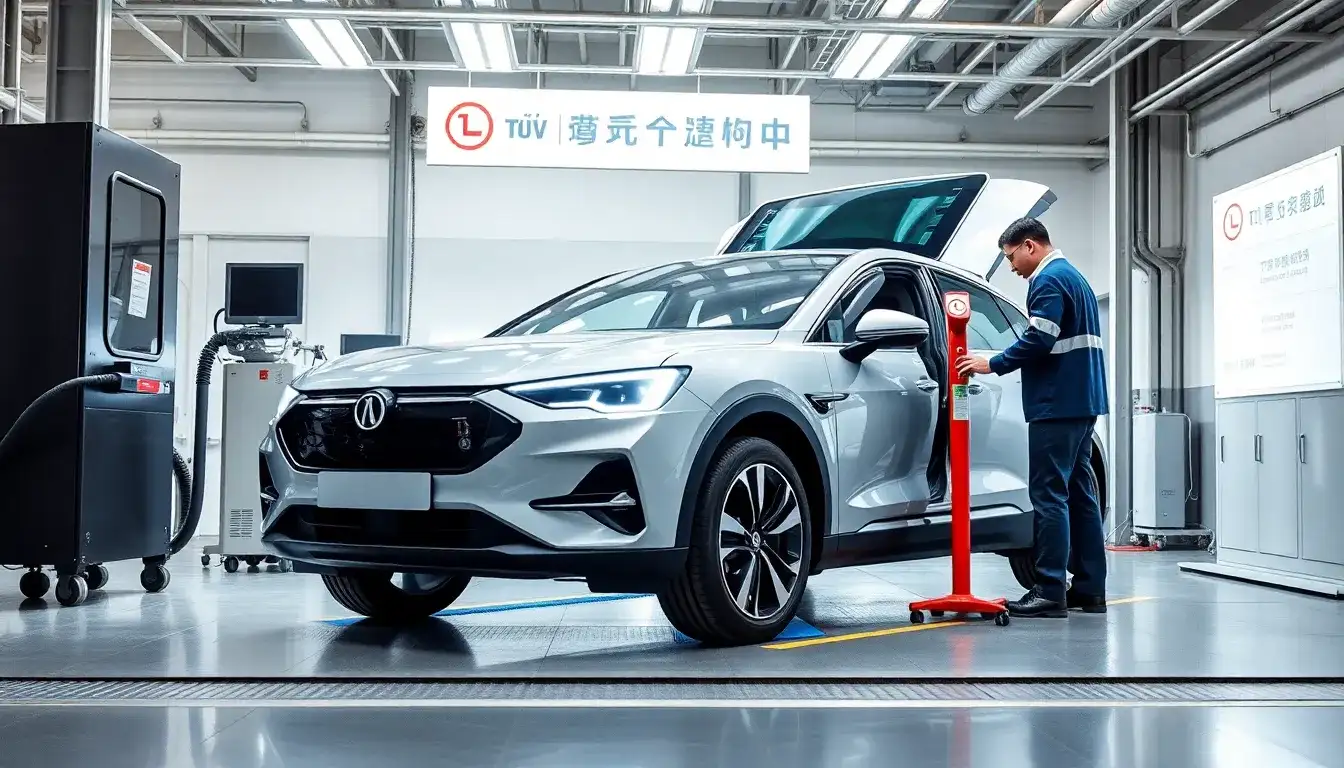
TÜV Rheinland’s Electric Vehicle Division continues to make significant progress in enhancing safety and sustainability standards. On March 18, 2025, the National Third Party Inspection, Testing, and Certification Agency of Germany conducted a thorough inspection at the TÜV Rheinland Greater China headquarters located in Shanghai, focusing specifically on the testing capabilities related to electric vehicle technology.
This meeting revolved around various critical topics, including the European Union’s regulatory frameworks, carbon footprint reduction policies, and environmental protection regulations. It aimed to foster a collaborative approach to developing a solid “production-academia-research” platform, thereby enhancing the precision of enterprises in accordance with national regulations and increasing the efficiency of technological implementation and collaborative innovation.
At the same time, TÜV Rheinland, alongside Shanghai Inspection and Testing Institute, announced a new partnership to address the challenges faced in the electric vehicle sector. This collaboration will focus on the utilization of advanced recycling technologies and the deployment of multi-level usage strategies to ensure sustainable development.
Moreover, TÜV Rheinland’s Greater China headquarters emphasized the need for swift adaptation to regulatory changes, especially in light of the accelerating shift towards sustainable energy solutions. They noted, “As electric vehicle technology stands at the forefront of the new energy sector, we are facing regulatory pressures that demand rapid adaptation and compliance with stringent carbon reduction policies.”
During the discussions, TÜV Rheinland shared insights on their services and their commitment to meeting the evolving needs of enterprises. They highlighted the importance of adhering to international standards and the necessity of implementing robust quality control measures in tandem with regulatory compliance.
In the future, the collaboration among the three parties will concentrate on advancing electric vehicle recycling technologies, regulatory management, and quality control measures. This will facilitate deeper cooperation in the sector and promote the development of innovative solutions, including pilot testing and certification standards for electric vehicles.
In conclusion, TÜV Rheinland and its partners are poised to lead in the electric vehicle sector by embracing sustainability and innovation while navigating the complex regulatory landscape. Their efforts will contribute significantly to the development of a more sustainable future for electric mobility.







